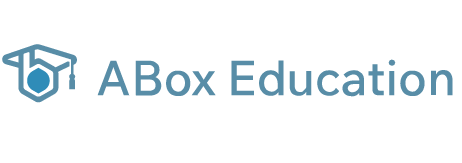10 News a Day – U.S. Education Challenges, International Students, and College Admissions Updates
- bonniechen54
- Apr 3, 2025
- 4 min read
Trump’s Impact on the U.S. Student Visa System: A Growing Crisis for International Students
Source: Inside Higher Ed
The Trump administration's policies have led to increasing difficulties for international students applying for U.S. student visas. The changes in visa processing and increasing scrutiny have resulted in a 20% drop in international student enrollment in certain universities. These changes have made it harder for students from countries like China and India to obtain the necessary visas, creating a significant barrier for students who wish to pursue their studies in the U.S. The administration’s approach has sparked criticism from university leaders, who argue that these restrictions not only harm students but also undermine the U.S.’s status as a global leader in higher education.
Trump Administration Freezes Half of Princeton’s Federal Funding
Source: Inside Higher Ed
The Trump administration has frozen half of Princeton University’s federal funding, amounting to approximately $10 million. The freeze was implemented as a result of the university’s alleged violations of federal policies. This decision could have significant consequences for the university, especially in research areas that depend on federal funding. Princeton, alongside many other universities, is concerned that these funding cuts could impact the academic experience and research opportunities for both faculty and students.
International Student Recruitment in the U.S. Takes a Hit as Some Universities See Enrollment Declines
Source: Times Higher Education
Many U.S. universities are seeing a sharp decline in international student enrollment due to various factors, including the increasingly stringent visa policies and rising tuition fees. Some universities have reported a 50% reduction in the number of international students applying or enrolling. This trend poses a significant challenge for U.S. higher education institutions that rely on international students to diversify their campuses and generate essential revenue.
AI Education: Experts Say No Student Should Graduate Without Being Taught AI
Source: Times Higher Education
Leaders in education have called for artificial intelligence (AI) to be included in the core curriculum of every school. At a recent global education summit, experts emphasized that no student should graduate without having a fundamental understanding of AI. They argue that as AI becomes more integral to various industries, it is essential for students to develop critical skills in this area. The call for AI education reflects the changing demands of the job market, with employers seeking candidates who can navigate technological advancements.
Columbia University Faces Criticism Over Recent Controversies
Source: Chronicles Magazine
Columbia University has been criticized for its handling of recent political controversies, including campus protests and its ties to foreign governments. The article argues that the university has failed to maintain its academic integrity and independence, with some critics labeling its response as overly politicized. These controversies have raised questions about the role of universities in maintaining academic freedom and protecting free speech on campus, a growing concern among students and faculty alike.

Credit: Pomona College Wealthy Institutions Push to Increase Enrollment for Low-Income Students
Source: Higher Ed Dive
Wealthy universities are making concerted efforts to increase enrollment from low-income students as part of their broader diversity initiatives. These institutions, including Harvard and Stanford, have increased their financial aid offerings and adopted more flexible admissions processes to make their schools more accessible to students from diverse socioeconomic backgrounds. The goal is to ensure that talented students, regardless of their financial situation, have access to a high-quality education.
Wellesley College Welcomes the Class of 2029 with Record Applications
Source: Wellesley College News
Wellesley College has announced the admission of its largest and most diverse incoming class for the Class of 2029. The college received a record number of applications this year, with more than 20,000 students applying for just over 600 spots. The incoming class reflects the institution's commitment to diversity, with a substantial increase in the number of underrepresented minority students.
Scripps College Announces Plans to Remove 240 House and Warns Students to Prepare Backup Options
Source: The Student Life
Scripps College has announced plans to close its 240 House, a student residence hall, due to ongoing maintenance issues and safety concerns. The closure has sparked frustration among students, especially those who had planned to live in the building. Students have been advised to make backup housing arrangements for the upcoming academic year as the college seeks alternative solutions to address housing shortages.
Pomona College Introduces the Class of 2029 with an Emphasis on Diversity and Global Impact
Source: Pomona College News
Pomona College has unveiled its incoming class of 2029, focusing on attracting students who have shown leadership potential and a commitment to global social impact. The college received more than 12,000 applications and admitted just under 1,000 students. The class is highly diverse, with an increasing number of students from international backgrounds and underrepresented communities.
How Every Kid in America Can Benefit from a Tutor: Tips on Funding and Finding Resources
Source: Education Next
Education experts argue that every child in America deserves access to a tutor, especially as the academic challenges of the post-pandemic world continue. However, many families face financial barriers to tutoring services. The article provides guidance on finding and funding tutoring opportunities, including using state and federal resources and online platforms. By focusing on equitable access to tutoring, the article highlights how targeted support can improve student outcomes and bridge learning gaps.
Stay updated on the latest developments in U.S. education, international student policies, admissions trends, and educational innovations!




Comments